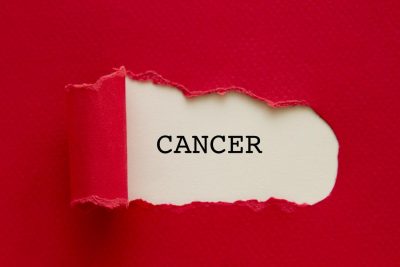As Monday marks World Cancer Day, medical experts have said patients who present the disease early have high chance of survival.
They advised women above 40 years to go for mammogram and ultrasound cancer screening at least once a year, depending on the age of the person and family background.
This is because people who have a family history of cancer have high tendency of been affected by the ailment, as they have genetic predisposition for it.
They also said healthy lifestyle aid in the quest for a cancer-free life. Thus, the consumption of more fruits and vegetables helps to prevent excess toxic build-up in the system that might cause cancer in the future.
It is also essential that people engage in physical exercise, which helps to reduce fats in the body. Obese people are at risk of having cancer. They, therefore, advocate regular check of body max index.
Dr. Modupe Akinyinka, a Senior lecturer and Consultant Public Health Physician at Department of Community Health and Primary Health Care Lagos State University College of Medicine (LASUCOM), said cancer is an abnormal cell growth that can be found anywhere in the body.
She noted that men are more prone to prostrate cancer, while breast cancer is common in women, though some men also develop breast cancer. But it is only one out of 100 men that has breast cancer.
Akinyinka said: “The theme of this year’s World Cancer Day: ‘I Am and I Will’ is a call for global commitment to help reduce the burden of cancer globally, adding that there is need for people to support cancer patients and survivors, even after treatment has ended.
“The theme indicates it is time to make personal commitment to end cancer, just like it is a call on governments to commit adequate resources to reduce cancer deaths and provide a better quality of life for patients and survivors.
“People should educate themselves and others about the link between certain lifestyle behaviours, including smoking, poor diet, and lack of physical activity and cancer risk.
They should also dispel rumors and myths that lead to stigma and discrimination against people with cancer in some communities. Government should also encourage schools and workplaces to implement nutrition, physical activity, and no smoking policies that help people adopt healthy habits for life.
“Different cancers are affecting different parts of the body, as well as affecting different ages. Now, we have childhood cancers, with cancer of the eyes being prevalent among children.
“There are also cancers among elderly people. For instance, there are cancers of the kidney and soft tissues, among others. Presently, cancer is increasing daily, as more people are coming down with the disease in the country, unlike before, when only a few people had cancer.
“Among women, the commonest are breast cancer, cervical cancer, ovarian cancer and vaginal cancer, among others. We advise that men under 40 years go for prostrate specific antigen (PSA) cancer screening, because between the age of 40 and 50, the chances of having prostrate cancer is high. And when a person tested positive, he should try to see a doctor for treatment.”
Akinyinka explained that there are treatments for cancer patients, which include radiotherapy, chemotherapy and surgery, among others. There are also specialists in all these fields, though there might be challenges of inadequate equipment in the hospitals.
She said: “Another challenge is poverty, because people cannot even afford the treatments. The National Health Insurance Scheme (NHIS) should cover the cost of some of these drugs.
Therefore, government should try to implement NHIS to reduce cost of treatments. “We encourage non-governmental organisations (NGOs) which have been very supportive to donate drugs and cash gifts to patients.
We also advise people that as they grow older, they should eat balanced diets, avoid red meat, reduce intake of alcoholic beverages and smoking.
“There are also occupational hazards, which we advise people to avoid. These include chemical industries, among others. Exposure to these chemicals lead to having one cancer or the other and people need to be protected.”
A Paediatric Hematologist/Oncologist at the Lagos University Teaching Hospital (LUTH), Dr. Seye Akinsete said childhood cancers are affecting more children, and is increasingly becoming a major cause of childhood morbidity and mortality.
He advised that parents should know certain danger signs that may be pointers to an underlying cancer. These include repeated fever, hospital admissions, and treatment for malaria or infections, repeated blood transfusions.
Bleeding from the nostrils or gums, shining eyes like that of a cat in the dark, abnormal swelling of legs or unexplained swelling on parts of the body. These are genuine reasons for parents to visit the hospital for medical screening and check ups.
Akinsete said: “Childhood cancers do not have causes like adult cancers. Most of the cancers are due to genetic mutations that occur for the first time in the child. Some cancers occur in certain families like Li-Fraumeni Syndrome.
“There are no known preventive measures in children, except for such general interventions like hepatitis immunisations and Human Papilloma Virus immunization. He noted that the best places to treat childhood cancers are at comprehensive cancer centres, where most modes of treatment are possible.
“LUTH is an established centre for treating children with childhood cancers. Most of those with solid tumours survive, while leukemia patients do not do so well. Most other teaching hospitals offer treatment for children, including primary healthcare centres and other recognised and registered hospitals.
“Treating childhood cancers is still a challenge in Nigeria because of poor awareness and late presentation, as well as inadequate infrastructure,” he said.
Dr. Rufus Wale Ojewola, a Consultant urologist, Department of Surgery, Lagos University Teaching Hospital (LUTH), and a lecturer in Surgery, College of Medicine of University of Lagos (CMUL), said the prostate is an accessory organ of reproduction found below the bladder in men.
Prostate cancer is when cancer develops from the prostate organ.
He said: “Prostate cancer can be aggressive and lead to death. It can be slow growing, in which case, patients can live long and die of other diseases or causes like complications of diabetes, hypertension, lung diseases or even road traffic accidents or old age.
“The risk of developing prostate cancer increases with age. The peak incidence is in the sixth and seventh decades of life. It was rarely diagnosed in men below 50 in the past, but this has changed, as younger men are increasingly being afflicted now.
“We now diagnose prostate cancer in men around 40 years. This is what we call age migration in cancer, and is not peculiar to prostate cancer alone. For example, breast cancers are being diagnosed increasingly in teenagers now.
There is a racial predisposition to prostate cancer, as it is an established fact that the disease is commoner and more aggressive in blacks than whites. Men should also know that prostate cancer is curable, if detected at the early stage.”
Ojewola said manifestation of prostate cancer depends on the stage at diagnosis. In the very early stage, it might not manifest with any symptom.He said: “It is only discovered during screening for prostate cancer. This is the commonest method of detection in the Western world, where there are organised screening programmes for men.
“If not discovered at this stage, it can then progress to manifest as lower urinary tract symptoms, which include difficulty in passing urine like urinary frequency, nocturia (frequent urination at night), intermittent stop and start pattern of urination, urgent inability to postpone urination, applying force during urination, incomplete voiding, feeling of urine remaining in the bladder after urination or poor urinary stream. There may also be passage of blood in the urine or bloodstain in the seminal fluid.
“By the time prostate cancer is advanced, there may be weight loss, loss of appetite or generalised weakness. There may be back pains, if it has spread to the back or weakness or paralysis of the legs, if the spinal cord is involved.
There may be yellowness of eye and abdominal swelling if the liver has been involved. There may be a cough, chest pains and passage of bloody sputum, if the lungs are affected. The truth is that it can spread to any organ in the body, if not discovered and treated early.”
The Founder of Children Living with Cancer Foundation, Dr. Nneka Nwobbi said in developed countries such as the UK or U.S., cancer treatments are 80 per cent successful because of early presentation and quality healthcare delivery, while in Nigeria, it is about 20 percent cure rate.
She noted that many parents are not aware their children can have cancer. So, by the time they come for treatment, the cancer might have spread making it difficult to cure.
She said: “We want Nigerians to know that cancer also occurs in children and not just adult. Parents should do the needful and have their child properly investigated and commence treatment as soon as possible.
“Parents should be willing to open up to the public, in the sense that they are able to discuss that their children have cancer. Keeping such diseases secret is dangerous.”She listed early symptoms of cancer in children to include loss of hair, the complexion becoming quite dark and vomiting.
Culled from The Guardian NG















